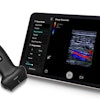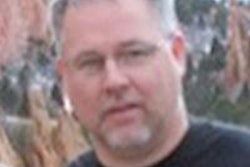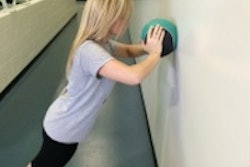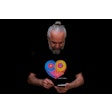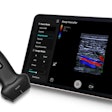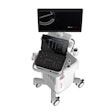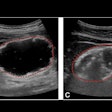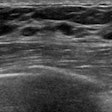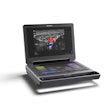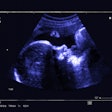
Much of the time, daily life throws you the same old "stuff." The daily humdrum of life is inevitable for all of us. Monday turns into Wednesday, Wednesday runs into the weekend, one week runs into the next, and pretty soon you've made it through another month.
Work, home, kids. Work, home, kids. And so the cycle continues. As a sonographer, you go from one patient to the next, trying to make it through another busy day with too much to do and not enough time or help to do it.
Every once in a while, though, life throws you a curve ball that changes your perspective. I had one of those the other day, and I wanted to share it with you. It was a great reminder to me that simply doing my job well makes a difference in the lives of others.
A 47-year-old man had come into the emergency room with symptoms of fatigue and shortness of breath. An electrocardiogram showed that the relatively young man was in a cardiac arrhythmia called atrial flutter. For my noncardiac sonographer readers, that means the heart's electrical circuitry is out of whack.
In essence, the top two chambers of the heart are not communicating with the bottom two chambers. This would cause symptoms of fatigue and shortness of breath. The man was admitted to our intensive care unit (ICU) and started on our atrial/fib/flutter protocols, including an echocardiogram.
Remembering the 'why'
I have been doing echo for about 14 years now and have worked on thousands of patients. I know what I'm doing. I'm good at it, and I pride myself on providing quality work. But at times I have forgotten the "why" behind what I do.
 Sonographer Doug Wuebben and his daughter.
Sonographer Doug Wuebben and his daughter.
During this patient's echo, there were several echo indicators that revealed evidence of a pulmonary embolus (PE), which is a blood clot or clots in your lungs blocking blood flow to the lungs. This condition can be life-threatening if it is not treated and recognized quickly.
After completing the echo, I contacted the cardiologist and relayed my findings and my suspicions about the pulmonary embolus. The cardiologist then ordered a PE protocol and the patient was taken to CT for a lung scan. While en route from CT back to the ICU, this patient coded twice. Both times he was successfully resuscitated.
The CT showed a massive PE, treatment was initiated, and ultimately it was successful. The patient fully recovered and is now back at work and able to undertake the demands and responsibilities of family life.
After the process had run its course, my cardiologist approached me and thanked me for calling him. He explained that PE initially was not one of the differentials, and that the echo I did and the recognition that it was a likely PE probably saved the patient's life. He praised me and gave me recognition that, while unnecessary, sure felt good.
Going the extra mile
The whole process got me thinking. How many times do we go through our day, working on each patient just to get the procedure done for the doctor to read? We do what we have to, but do we go the extra mile? It happens to me; does it happen to you? This one study really helped change my perspective.
This may be your 10th study of the day, and you are worn out and tired. After you leave work, the lawn needs to be mowed, kids need to be picked up, and supper needs to be made. Then there's homework, laundry, cleaning, bills ... a lot of "stuff."
Everybody has a lot of stuff. I have a lot of stuff. What I also have, though, is an obligation and a duty to every patient whom I work on. It is to give each patient my best attention and the best study I can based on my skills, abilities, and experience.
Does this sound grandiose, altruistic, and unrealistic? It is none of the above. Think about if you were working on your mother, father, spouse, or child. Would you bring a different level of work, intensity, and focus? Even if you were tired and had a lot of stuff to do?
When you are working on someone, think of them as your family. Do the best that you can, and get it as perfect as possible. Anything less is unacceptable.
'Help this person'
I recently read an article, "Three Words That Will Transform Your Career," by Bruce Kasanoff. Bruce wants us all to realize what a difference we can make in people's lives and in our lives, if we just follow these simple words: Help this person.
Whenever you encounter someone during your day, flash that mantra into your head. If you are at a coffee shop standing in line: Help this person. If you are at the grocery store: Help this person. If you are at work: Help this person. If we all took that mantra, think of what a better country this would be.
It sounds odd, but since reading that article I've taken the phrase to heart and used it over the past couple of days. Since then, I have been a better person. I've been a better husband, a better father, and I've done better at work, all while feeling better about myself.
Life isn't meant to be as crazy complicated as we make it. Help this person: It's simple but effective. I will never be president of the United States. I will never run a large organization. I will never make a $1 million salary. I know that, and I am at peace with that.
My place on Earth has to do with making a difference, doing what I do. This is one way that I make an impact. The only person who will know if I do or do not follow this credo is me.
In this article series, my colleague Mark Roozen and I will discuss how taking time to care for yourself and making the best "you" enables you to have a huge impact on the life of others and on yourself.
Doug Wuebben is a registered cardiac sonographer who performs adult and pediatric echocardiograms in South Dakota and can be reached at [email protected]. Mark Roozen is a strength coach with the Cleveland Browns and also the owner and president of Performance Edge Training Systems (PETS). He can be reached at [email protected].

